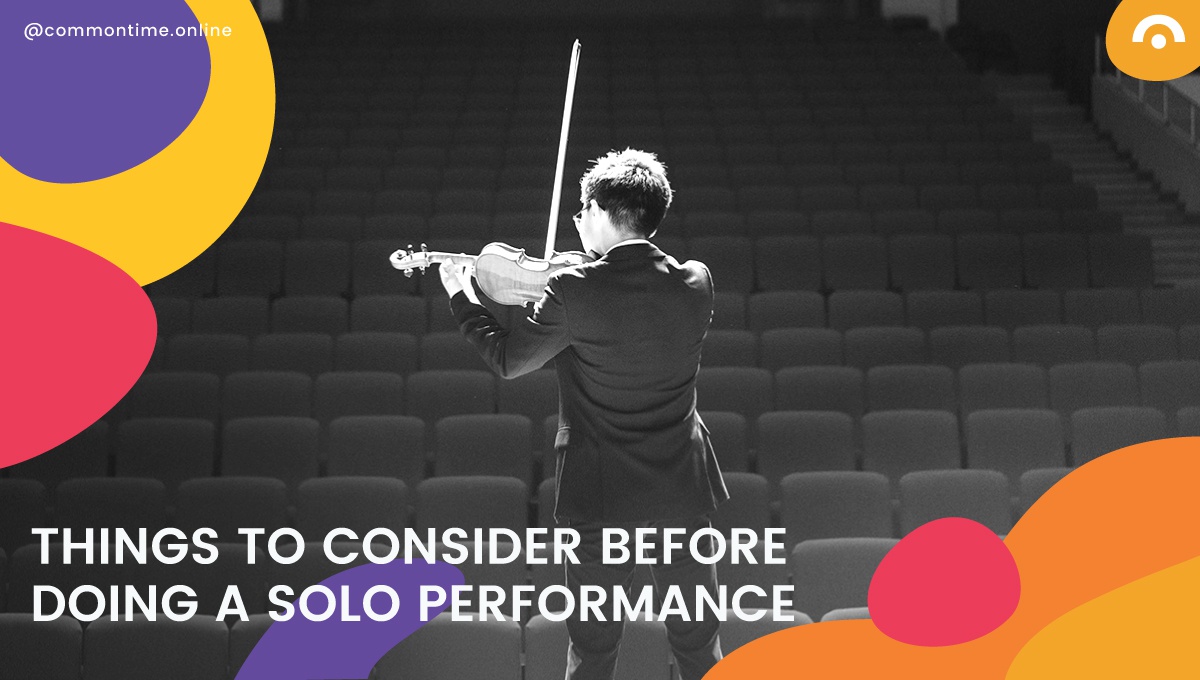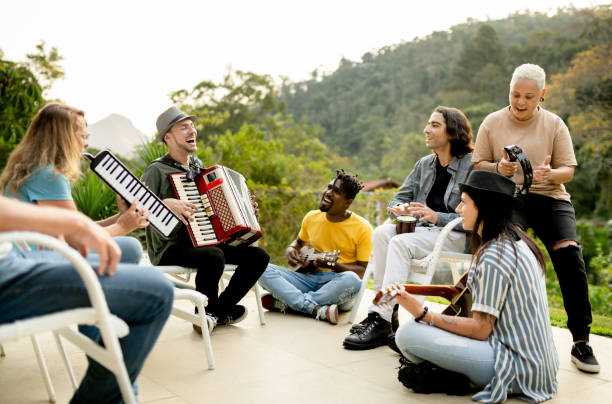6 Things To Consider Before Doing A Solo Performance
Your first solo performance is almost here, and the pre-performance nerves are setting in. Do you feel your heart racing, have butterflies in your stomach or feel shaky or light-headed? You’re not alone! To transition from an at-home rehearsal to a live performance requires ambition, focus, and effort — especially if you want to be a solo performer.
Whether actors, singers, or dancers, great solo performers think about the impact their performance will have on the audience. A solo performance gives the artist full control and allows them to express the story they want to tell, which is a rare opportunity. It’s completely natural to get nervous before a solo performance.
Here are 6 valuable tips to consider before doing a solo performance
1. Perform for friends
Practicing your piece goes without saying, but practicing performance is an entirely different matter. Learn all the riffs, guitar solos, and chord progressions by heart. Practice the intro, verses, chorus, bridge, and solo individually, then practice the entire piece from start to finish without stumbling. Make sure you practice from beginning to end, and if you make a mistake, keep playing and work on your recovery. Practice the piece as you will play it at your solo performance — if that means standing, then stand. Rehearse your repertoire before your actual performance for a friend, a family member, or just someone you know. The more you practice and prepare thoroughly, the more you will build your confidence on stage and relieve feelings of uncertainty.
2. Choose your focus ahead of time

One of the most important solo performance tips is the ability to keep your concentration. It can be very difficult to keep your mind from wandering to other things that may be bothering you. The key is to channel your attention in a positive direction. Visualizing your performance going well before it happens can be extremely beneficial, much like a basketball player imagining the ball going through the net as they take the shot. Before you perform, choose where you’re going to center your focus. That way, you reduce the mental effort you need while performing, rather than making your mind work harder.
-
Also Read: Best Trending Dance Styles Worldwide
-
3. Perform in a choir

Another idea for a virtuoso solo performance is to perform in a choir. While it’s widely known that singing in a choir improves one’s physical and emotional well-being, did you know it can also improve your solo performance? Singing in a choir can boost your self-confidence and develop your ability to perform solo. You might even say that choir performance is the launchpad for solo performance. Many new students and amateur performers often experience stage fright when asked to perform solo. Taking part in a group performance helps you develop your self-esteem. As a result, you can overcome stage fright and feel more comfortable in delivering a solo performance. Learn from the experts and start your journey to become a performing artist today
4. Set realistic expectations

One reason we get nervous before a solo performance is because we expect too much of ourselves. If you establish unrealistic goals for yourself, it’s natural to be concerned about your ability to meet them. You’re likely to perform better if you’re willing to make mistakes occasionally rather than if you’re determined to avoid them at all costs. When you’re not chasing the idea of perfection, you might discover that you do, in fact, give that perfect performance. You’ll experience less pressure and more fun if you just relax!
5. Dress for success

A solo performance is a special occasion, so dressing to impress will help you stand out to your audience. By looking professional, you will show your audience that you are giving it your all. Choose your wardrobe in advance and wear shoes that you have already broken in. Practice a few times while wearing your planned outfit to ensure you are comfortable.
-
Also Read: 8 Pros Of Being A Multi-Instrumentalist
-
6. The early bird gets the worm

There are plenty of reasons to arrive early for your solo performance. Arriving early before any significant presentation, whether at school, a soccer competition, or a musical performance, will help you feel more prepared when you go on stage. Rushing because you are late will simply add to your worry and stress before the performance.
Conclusion
One last tip — don’t give up! Feeling scared and insecure is normal, but don’t let it get the best of you. These feelings are almost always temporary and should never keep you from doing what you love. Take chances when you believe they are worthwhile! Always remember to form a personal connection with the audience in order to ensure a successful solo performance.
At CommonTime, you can learn, explore, or teach the arts from anywhere in the world! We have an incredible community of musicians, dancers, and actors to help you kick-start your solo career.
Click here to browse our growing catalog of professional teaching artists.
Don’t have a CommonTime account? Sign up for free!




